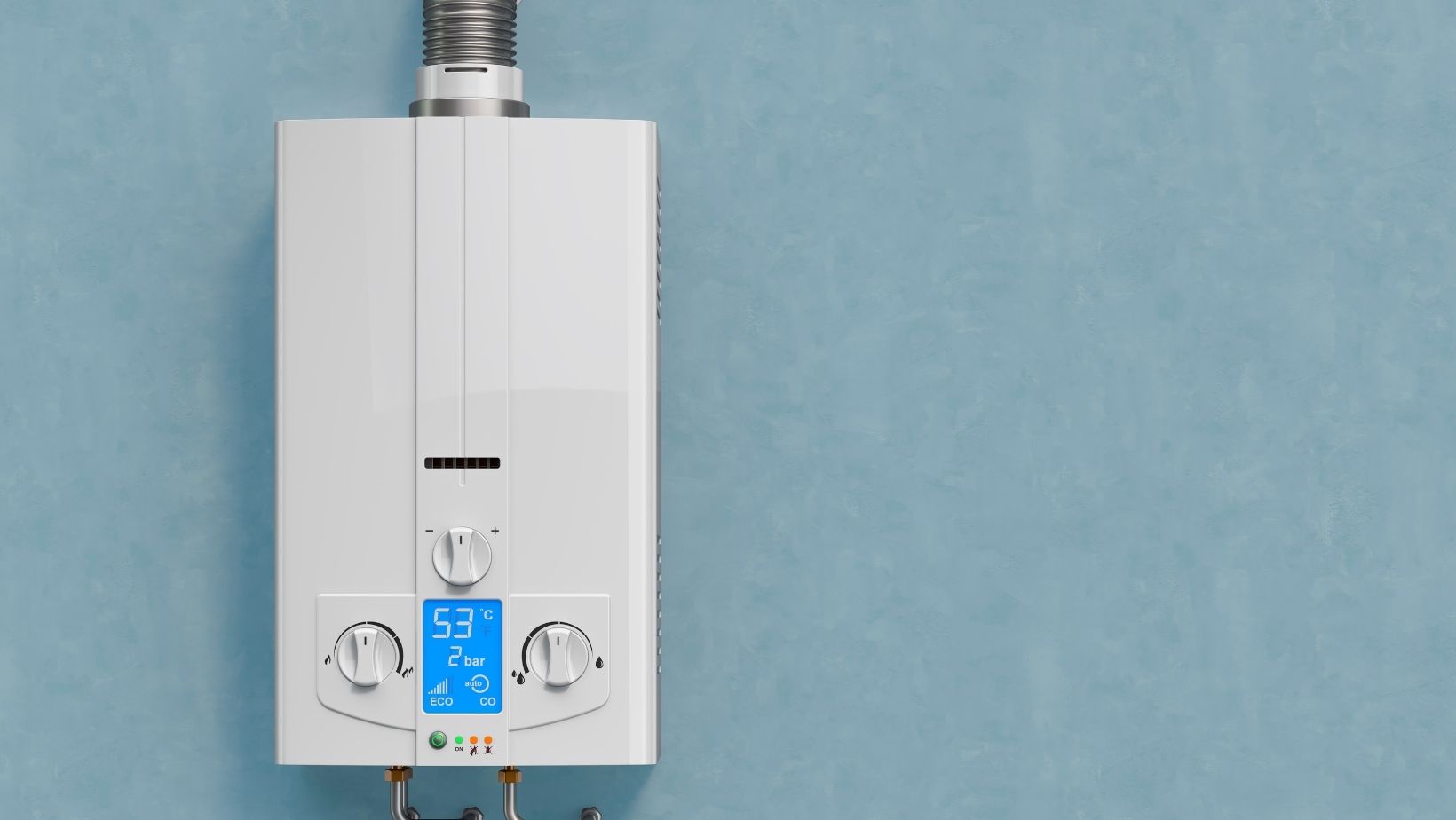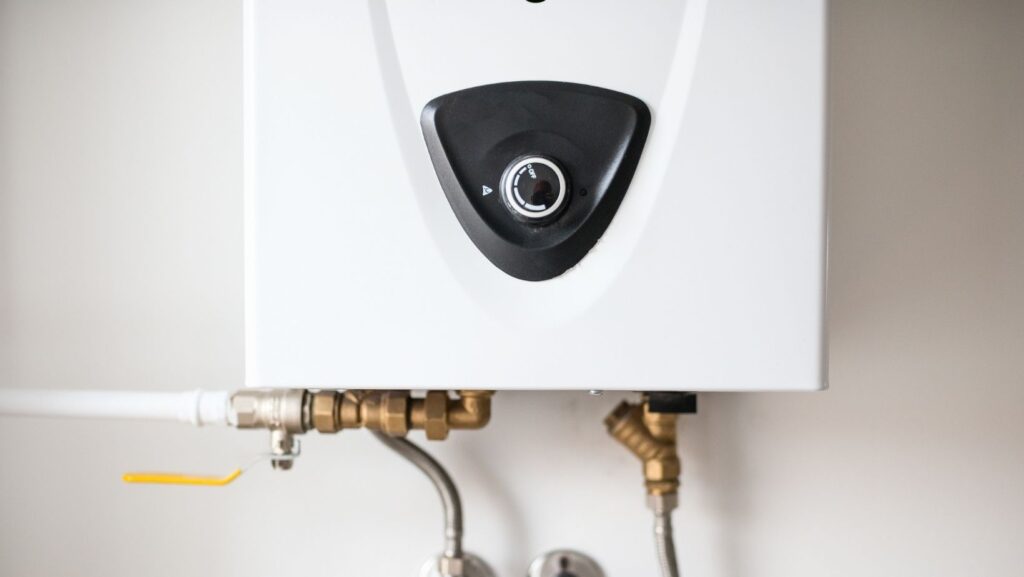Mesa’s desert climate presents unique challenges for homeowners, particularly when it comes to maintaining essential appliances, such as water heaters. With scorching summers that can reach 115°F and surprisingly chilly winter nights, your water heater works harder than you might think to meet the seasonal demands.
Regular maintenance isn’t just a good idea—it’s essential for preventing costly breakdowns and ensuring your family has reliable hot water year-round. Many homeowners don’t realize that seasonal changes can significantly impact their water heater’s performance and lifespan. Working with experienced HVAC companies in Mesa, AZ, can help you stay ahead of potential issues before they become expensive problems.
This guide outlines the specific maintenance tasks your water heater needs during each season in Mesa, helping you maximize efficiency and avoid unexpected cold showers.
Spring: Preparing for the heat ahead
Spring is an ideal time to inspect your water heater and ensure it’s ready to handle the heavier workload of the summer ahead. The moderate temperatures make it easier to work around your unit and address any issues that develop during winter.
Essential spring tasks
- Inspect the temperature relief valve
Your temperature and pressure relief valve serves as a crucial safety feature. Test it by lifting the lever slightly to ensure water flows out, then release it cleanly when you let go. If the valve doesn’t operate smoothly or continues to drip afterward, it needs to be replaced.
- Check for leaks and corrosion
Inspect your water heater thoroughly, looking for signs of moisture, rust, or mineral buildup. Pay special attention to pipe connections, the drain valve, and the base of the tank. Small leaks can quickly become major problems during peak usage periods.
- Flush the tank
Mesa’s hard water contains high levels of minerals that settle at the bottom of your tank over time. Flushing removes this sediment, which can reduce efficiency and cause premature wear. Turn off the power and water supply, connect a hose to the drain valve, and flush the water until it runs clear.
- Test the anode rod
The anode rod protects your tank from corrosion by attracting corrosive elements in the water. If it’s more than 75% corroded or less than ½ inch thick, replacement is necessary. This relatively inexpensive part can significantly extend the life of your water heater.
Spring maintenance benefits
Regular spring maintenance helps your water heater handle increased usage during the summer months when longer, more frequent showers become the norm. It also spots potential issues before they escalate into emergencies during periods of peak demand.

Summer: Managing peak demand
Summer brings the highest water usage of the year as families take more showers to cool off and wash more clothes and dishes. Your water heater must work efficiently to meet this increased demand while battling extreme ambient temperatures.
Critical summer considerations
- Monitor temperature settings
During summer, you can lower your water heater temperature slightly without sacrificing comfort. This helps lower energy use and minimizes strain on the unit. However, never set it below 120°F, as lower temperatures can promote bacterial growth.
- Ensure proper ventilation
Gas water heaters need adequate airflow to operate safely and efficiently. Check that vents aren’t blocked by storage items and that the area around your unit remains clear. Poor ventilation forces your water heater to work harder and can create dangerous conditions.
- Watch for warning signs
Pay attention to any changes in your hot water supply during peak summer usage. If you’re running out of hot water more quickly than normal, hearing unusual noises, or noticing fluctuating temperatures, these could be signs of developing problems.
- Insulate hot water pipes
Insulating the first six feet of hot water pipes leaving your water heater can reduce heat loss and improve efficiency. This simple step becomes especially valuable during summer when every bit of efficiency counts.
Managing summer challenges
The extreme heat in Mesa can cause your water heater to work harder than usual. If your unit is located in a garage or utility room without adequate cooling, consider improving ventilation or adding insulation to protect it from ambient heat.
Fall: Preparing for winter efficiency
Fall maintenance focuses on preparing your water heater for the months ahead when it’ll work harder to heat water in cooler conditions. This season is also a great chance to address any issues that developed during the demanding summer months.
Key fall maintenance tasks
- Inspect insulation
Inspect the insulation around your water heater tank and hot water pipes. Replace any damaged or deteriorated insulation to keep your system running efficiently through the colder months. Good insulation can reduce standby heat loss by 25-45%.
- Clean the combustion chamber
For gas water heaters, ensure the combustion chamber is clean and free of debris. Dust and dirt can accumulate over time, reducing efficiency and potentially creating safety hazards. This task requires careful attention to safety protocols.
- Check the thermostat
Verify that your thermostat is functioning correctly by testing the water temperature at several faucets. Inconsistent temperatures may indicate thermostat problems that should be addressed before winter demands increase.
- Examine electrical connections
For electric water heaters, inspect all electrical connections for signs of corrosion or looseness. Secure connections ensure efficient operation and prevent potential safety hazards.
Fall Preparation benefits
Proper fall maintenance ensures your water heater operates efficiently during winter months when heating costs typically increase. It also helps identify worn components that might fail during peak demand periods.
Winter: protecting against cold weather
While Mesa’s winters are mild compared to other regions, nighttime temperatures can still drop significantly. These temperature swings can stress your water heater and its components, making winter maintenance crucial for reliable operation.
Winter protection strategies
- Insulate exposed pipes
Protect any exposed hot water pipes from potential freezing during cold snaps. Even brief periods of freezing temperatures can cause significant damage to unprotected pipes.
- Monitor for condensation
Cold weather can cause condensation to form around your water heater. While some condensation is normal, excessive moisture can indicate problems with combustion or ventilation that need professional attention.
- Check the pilot light
For gas water heaters, ensure the pilot light burns steadily with a blue flame. A yellow or orange flame may indicate combustion problems that require immediate professional attention.
- Maintain proper clearance
Winter often brings increased storage needs. Ensure nothing gets stored too close to your water heater, maintaining proper clearance for safety and efficiency.
Winter efficiency tips
During winter, your water heater works harder to maintain set temperatures. Consider installing a timer to reduce energy consumption during periods when hot water isn’t needed, such as when everyone is away during the day.
Year-round best practices
Certain maintenance practices benefit your water heater regardless of the season. These ongoing habits help extend its lifespan and maintain optimal performance throughout the year.
Monthly checks
- Test the temperature relief valve
Monthly testing ensures this critical safety component functions properly. A faulty relief valve can lead to dangerous pressure buildup.
- Check for leaks
Regular visual inspections help catch small leaks before they become significant problems. Look for water stains, mineral deposits, or actual dripping.
- Listen for unusual noises
Strange sounds, such as popping, rumbling, or banging, can indicate sediment buildup or other issues that require attention.
Annual professional service
While homeowners can handle many maintenance tasks, annual professional service ensures comprehensive care. Experienced technicians can identify potential problems that might not be obvious to untrained eyes and perform complex maintenance tasks safely.
Professional services typically include a detailed inspection of all components, testing of safety systems, and recommendations for repairs or replacements. This investment in professional care can prevent costly emergency repairs and significantly extend your water heater’s lifespan.
When to call the professionals
Some maintenance tasks require professional expertise for safety and effectiveness. Recognizing when to call for help protects both your family and your investment in your water heater.
Signs you need professional help
- Inconsistent water temperature
If your hot water temperature fluctuates significantly or you’re not getting enough hot water, a professional diagnosis can identify the underlying cause.
- Strange noises
While some sounds are normal, loud banging, popping, or rumbling noises often indicate serious problems requiring professional attention.
- Discolored water
Rusty or discolored hot water can indicate internal corrosion or other issues that need immediate professional assessment.
- Gas odors
Any gas odors around your water heater require immediate professional attention and may indicate dangerous conditions.
Professional service benefits
Professional technicians have the training, tools, and experience to handle complex maintenance tasks safely. They can also identify potential problems before they become expensive repairs, ultimately saving you money and ensuring the safety of your family.
Conclusion
Proper seasonal maintenance keeps your water heater running efficiently throughout Mesa’s challenging climate conditions. By following these guidelines and recognizing when professional help is necessary, you can ensure reliable hot water for your family while maximizing the lifespan of your equipment.
Remember that water heater maintenance isn’t just about preventing breakdowns—it’s about ensuring efficiency, safety, and peace of mind. Regular care protects your investment and helps avoid the inconvenience and expense of emergency repairs.
For complex maintenance tasks or when you notice any warning signs, don’t hesitate to contact experienced professionals who understand Mesa’s unique climate challenges and can provide the expert care your water heater needs.
